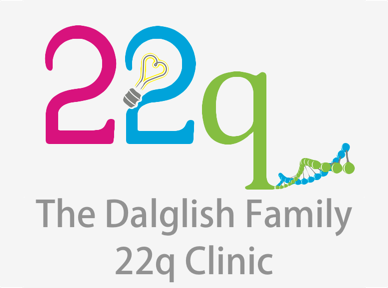Coping with the diagnosis and explaining it
“Most children and adults with the 22q11.2 deletion do quite well both medically and as members of their families and communities at large. As with anything that is unexpected, coming to terms with the diagnosis is often difficult at first but becomes easier as more information becomes available and as families have an opportunity to meet other children and adults with the 22q11.2 deletion and/ or to converse with them through diagnosis specific internet sites. In addition, attendance at family meetings/picnics; contacting support networks; and sending children to camps specifically designed for those individuals with a 22q11.2 deletion such as Dragonfly Forest is often helpful as families realize they are not alone.”
~ The 22q Family Foundation (Formerly the Dempster Family Foundation)
Staying positive
Everyone has good days and bad days.
A young man with 22q created a Facebook page in 2017 to stay positive, and his page has received over 1200 Likes as of April 2020.
Visit 22q-Positivity to get some great inspiration!
Explaining the diagnosis to others
Here are two resources for caregivers who need to explain 22q11.2DS (22q) to relatives and friends. These are also useful for health professionals who are unfamiliar with the syndrome.
Leaflet on 22q11.2DS and the Dalglish Clinic
This is a one-sheet, two-sided leaflet that contains a quick introduction to both the syndrome and our clinic. To print 3 double-sided copies per letter-sized sheet, please use this version. If you are using a duplex printer, please select "Print on both sides of the paper" and "Flip on long edge".A video called "My Child has 22q" made by The International 22q Foundation
Supporting someone living with mental illness
In an UHN News article, clinicians from the Community Mental Health Program share tips on how you can help.
